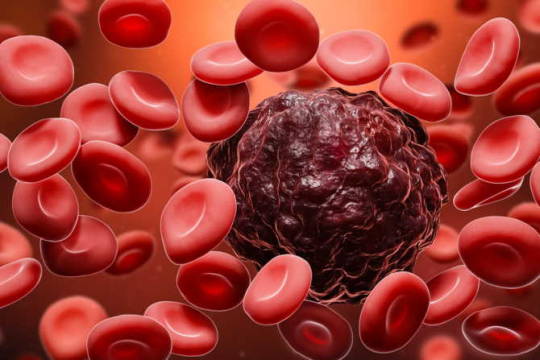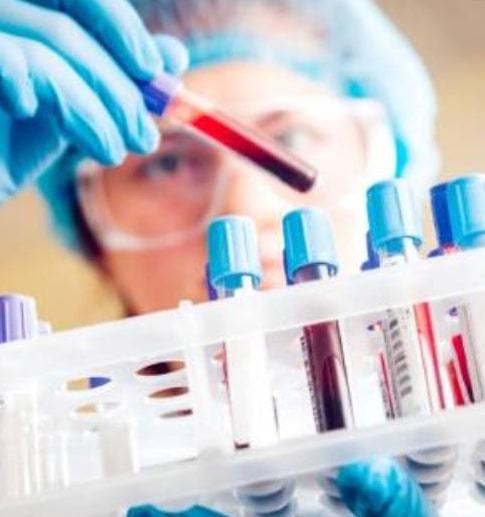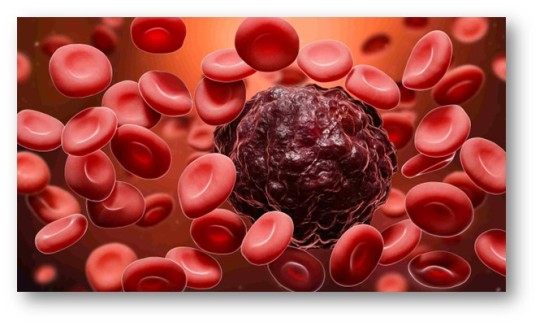#Blood cancer treatment
Text

Ways to reduce risk of cancer | Kingman Oncology Institute
Did you know that 1 in 3 people will be diagnosed with cancer in their lifetime? But there are simple ways to reduce your risk. Eat a healthy diet, exercise regularly, avoid tobacco and limit alcohol consumption. Take care of your body and lower your chances of developing this deadly disease.
#bone marrow biopsy procedure#chemo treatment process#blood cancer treatment#chemotherapy treatment process#bone marrow test for cancer
0 notes
Text
Blood Cancer treatment in India - Cost
Blood cancer, also known as hematologic cancer, occurs due to the abnormal increase in the size of the blood cells. This abnormality begins from the blood cells that produce in the bone marrow and further hinders the normal functioning of blood cells.
Thus, it is typically associated with the defective production of blood cells and/or blood component dysfunction in the lymphatic system and bone marrow. Blood cancer can impact any organ of your body.

Kinds of Blood Cancer
Blood cancer can be divided into multiple kinds depending on the affected tissues or cell origin.
Acute leukaemia: Acute leukaemia originates in the bone marrow and produces aberrant white blood cells. This further interferes with the ability of bone marrow to create normal red blood cells. Acute leukaemia can be divided into two types – acute lymphoblastic leukaemia (ALL) and acute myeloid leukaemia (AML). Both of these blood cancers are aggressive that can quickly become deadly if left untreated.
The diagnosis part depends on bone marrow tests, including flow cytometry, molecular testing and microscopic examination.
Non-Hodgkin lymphoma: This kind of blood cancer develops in the lymphatic system and interferes with the normal functioning of the body to provide immunity against infections. Lymphoma can occur in any organ of the body, from the brain to even the skin. However, it usually affects the lymph nodes.
Lymphomas comprise a large group of blood cancers, among which some grow slow while others are very aggressively fatal. To diagnose lymphomas, doctors recommend undergoing a lymph nodes biopsy or the affected organ biopsy. Based on the biopsy report, the therapy for lymphoma blood cancer is decided.
Chronic lymphocytic leukaemia (CLL): Chronic lymphocytic leukaemia has a close association with lymphoma. This is actually slower lymphoma that mainly affects the blood and bone marrow and sometimes impacts the liver, lymph nodes, spleen and several other organs. Its diagnosis relies on the flow cytometry of blood samples and lymph node biopsy.
Myeloma or Multiple Myeloma: Myeloma or multiple myeloma are actually the same kind of blood cancers that emerge from plasma cells. Plasma cells are an extremely important component of the immune system present in the bone marrow of the body. This kind of cancer is dangerous as it can cause broader damage to the body, including infection, anaemia, bone weakness or cracks and kidney dysfunction. The doctor advises undergoing bone marrow tests or a biopsy along with several other blood tests to diagnose this blood cancer.
<<<Read more >>>
0 notes
Text
Blood Cancer Ttreatment
Welcome to Rajiv Gandhi Cancer Institute and Research Centre (RGCIRC), where we specialize in providing top-tier blood cancer treatment. Our dedicated team of specialists and doctors brings years of experience to the forefront of cancer care. At RGCIRC, we understand the complexity of blood cancer and tailor our treatments to meet the unique needs of each patient. We are committed to delivering the highest standard of care and support throughout your treatment journey. If you or a loved one is facing blood cancer, don't hesitate to reach out. Call us today for a consultation and take the first step towards the best cancer care with RGCIRC.
For more information: https://www.rgcirc.org/patient-family/types-of-cancer/blood-cancer
#Blood cancer treatment in india#Best blood cancer hospital in india#Blood cancer treatment#Blood cancer symptoms#Blood cancer specialist#Blood cancer hospital#Blood cancer ka ilaj
0 notes
Text
Global Focus on Improved Outcomes: Global Blood Cancer Treatment market
The Blood Cancer Treatment market. According to a recent analysis, the market size is anticipated to increase from US$ 5,935.9 million in 2023 to US$ 15,735.3 million in 2033. During the projection period, Blood Cancer Treatment sales are expected to grow at a noteworthy Compound Annual Growth Rate (CAGR) of 10.2%.
Blood cancer, encompassing leukemia, non-Hodgkin lymphoma, Hodgkin lymphoma, and multiple myeloma, represents a significant healthcare challenge globally. The projected growth in the Blood Cancer Treatment market reflects the increasing prevalence of these malignancies and the growing demand for effective treatment options.
Discover Industry Secrets Through Your Sample Report:
https://www.futuremarketinsights.com/reports/sample/rep-gb-1425
Understanding Blood Cancers: A Complex Disease
Blood cancers are a group of malignancies that affect the blood, bone marrow, or lymphatic system. These cancers disrupt the normal production of blood cells, leading to a variety of health issues. The four main types of blood cancer are:
Leukemia
Hodgkin lymphoma (HL)
Non-Hodgkin lymphoma (NHL)
Multiple myeloma
Key Takeaways:
The global blood cancer treatment market is expected to reach US$15,735.3 million by 2033, reflecting a significant rise from US$5,935.9 million in 2023.
This growth is projected at a robust compound annual growth rate (CAGR) of 10.2% throughout the forecast period.
Increased research and development efforts for novel therapies, coupled with rising cancer awareness initiatives, are key drivers for market expansion.
Combating Blood Cancers: A Focus on Innovation and Accessibility
The global blood cancer treatment market is experiencing significant growth, driven by a multi-pronged approach. Increased investment in research and development by key players is leading to the creation of novel and targeted therapies for various blood cancers, including leukemia, lymphoma, and multiple myeloma.
Competitive Landscape:
Some of the key participants present in the global blood cancer treatment market are:
Novartis Pharmaceuticals
Merck & Co. Inc.
Bristol-Myers Squibb Company
AbbVie Inc.
Johnson & Johnson Pvt. Ltd.
Celgene Corporation
Amgen Inc.
Teva Pharmaceutical Industries Ltd.
Bayer AG
Pfizer Inc.
Takeda Pharmaceutical Co. Ltd.
Attributed to the presence of such a high number of participants, the market is highly competitive. While global players such as Takeda Pharmaceutical Company Limited, AstraZeneca, Bayer AG, and Novartis AG, account for a considerable market size, several regional-level players are also there operating across key growth regions, particularly in North America.
Recent Developments
In June 2021, Bayer announced that the company had submitted the supplemental new drug application (sNDA) to the USA Food and Drug Administration (FDA). The company had also applied to marketing authorization application (MAA) to the European Medicines Agency (EMA) for the oncology treatment combination of copanlisib and rituximab in the United States of America.
In 2021, Novartis announced strong data from the analysis of the pivotal Phase II ELARA trial of Kymriah in patients with relapsed or refractory follicular lymphoma, with one-time Kymriah infusion, which showed an analysis of the ELARA trial demonstrated a 66% complete response rate and 86% overall response rate.
In February 2021, Bristol Myers Squibb announced that the company received approval for cancer immunotherapy from the USA Food and Drug Administration (FDA) for certain lymphomas. Further, the FDA approved the therapy as a treatment for adults who have certain types of non-Hodgkin lymphoma.
Key Segments Covered in the Blood Cancer Treatment Market Report:
By Application:
for Biological/Immunotherapy Applications
for Chemotherapy
for Radiation Therapy
for Targeted Therapy
for Stem Cell Transplantation
By End User:
in Hospitals
in Clinics
in Cancer Rehabilitation Centers
By Region:
North America
Latin America
Western Europe
Eastern Europe
Asia Pacific Excluding Japan (APEJ)
Japan
The Middle East & Africa (MEA)
0 notes
Text

Blood Cancer Treatment | American Oncology Institute
Explore advanced blood cancer treatment options at American Oncology Institute. Expert care tailored to your needs. Schedule a consultation today.
0 notes
Text
Understanding The Role Of Bone Marrow Transplants For Blood Cancer Patients
Can bone marrow transplants be the life-saving hope for blood cancer patients? If you or a loved one is battling this challenging disease, the answer to this question might hold the key to renewed hope. In this comprehensive guide, we will delve into the world of bone marrow transplants, shedding light on their crucial role in treating blood cancer. What is the science behind these transplants, and how do they offer a potential cure for blood cancer? Join us on this journey as we explore the transformative impact of bone marrow transplants and how they provide hope to those in need.
#bone marrow#blood cancer#bone marrow transplant#bone marrow transplant for cancer#bone marrow transplant for blood cancer#cure of blood cancer#blood cancer treatment#online doctor consultation#online lab test#blood cancer specialist#online doctor#online pharmacy
0 notes
Text
Blood Cancer Treatment in India

Blood cancer, also known as hematological cancer or hematopoietic cancer, refers to a group of cancers that affect the production and function of blood cells. It occurs when abnormal cells in the bone marrow, the spongy tissue inside the bones, disrupt the normal production of blood cells
Blood Cancer Treatment:
Treatment for blood cancer depends on the specific type and stage of the disease. Common treatment modalities include chemotherapy, radiation therapy, stem cell transplant, targeted therapy, and immunotherapy. The choice of treatment is determined by factors such as the type of blood cancer, the extent of the disease, and the patient's overall health.
Symptoms:
Symptoms of blood cancer can vary depending on the type and stage of the disease. Common symptoms may include fatigue, weakness, frequent infections, unexplained weight loss, swollen lymph nodes, easy bruising or bleeding, and bone pain.
Diagnosis:
Diagnosing blood cancer involves a combination of physical examination, medical history review, blood tests, bone marrow biopsy, and imaging studies. These tests help determine the presence of cancer, its type, and its stage.
Treatment Risks/Complications:
Blood cancer treatments can carry risks and complications. Chemotherapy and radiation therapy can cause side effects such as nausea, hair loss, fatigue, and increased susceptibility to infections. Stem cell transplant carries risks such as infection, graft-versus-host disease, and organ damage. Targeted therapy and immunotherapy may have specific side effects depending on the drugs used.
Causes:
The exact causes of blood cancer are often unknown. However, certain risk factors have been identified, including genetic predisposition, exposure to certain chemicals and radiation, viral infections, a weakened immune system, and certain inherited conditions.
Procedure & Recovery:
The specific procedure and recovery process depend on the type and stage of blood cancer and the chosen treatment modalities. Surgery is not typically used for blood cancer. Recovery involves managing treatment side effects, monitoring blood counts, and potential maintenance therapies. Supportive care is essential for overall well-being.
Treatment Preparation:
Treatment preparation involves a comprehensive evaluation of the patient's health, including physical examinations, medical history review, blood tests, and imaging studies. The healthcare team discusses treatment options, potential side effects, and the overall treatment plan. Open communication with healthcare providers is important for making informed decisions about treatment.
Clinical Trials:
Clinical trials investigate new treatments or treatment combinations for blood cancer. Participation in clinical trials offers access to innovative therapies and helps advance medical knowledge. Eligibility criteria and informed consent are required for participation.
Cost in India:
The cost of blood cancer treatment in India can vary depending on factors such as the type and stage of cancer, treatment modalities used, hospital charges, and individualized care plans. It is advisable to consult with healthcare providers and hospitals to obtain accurate cost estimates and explore insurance coverage options.
Side Effects:
Side effects of blood cancer treatment can include nausea, hair loss, fatigue, increased susceptibility to infections, and anemia. The severity and duration of side effects vary depending on the specific treatment modalities used and individual response.
Success Rate & Treatment Diet:
The success rate of blood cancer treatment depends on several factors, including the type and stage of cancer, treatment modalities used, and individual response. A healthy and balanced diet is generally advised to support overall health during treatment. Consultation with a registered dietitian can provide personalized dietary guidance based on individual needs and treatment goals.
#Blood cancer#cancer#blood cancer treatment#blood cancer treatment in India#blood cancer symptoms#blood cancer causes#blood cancer risks#blood cancer diagnosis#blood cancer treatment cost
0 notes
Text
Comprehensive Cancer Screening: Early Detection, Check-Ups, Symptoms, and Treatment for Blood Cancer
Cancer is a global health concern affecting millions of lives each year. However, with advancements in medical science, early detection through cancer screening has become a powerful tool in combating this devastating disease. This article will delve into the importance of cancer screening, the significance of regular check-ups, the symptoms of blood cancer, and the available treatments for this particular form of cancer.

I. Cancer Screening: The Key to Early Detection
Cancer screening plays a vital role in identifying cancer at its earliest stages, when treatment outcomes are most favorable. Regular screening tests enable healthcare professionals to detect cancer before symptoms manifest, potentially saving lives. While there are various screening methods for different types of cancer, including mammograms for breast cancer and colonoscopies for colorectal cancer, this article will focus specifically on blood cancer screening.
II. Regular Cancer Check-Ups: Your Path to Wellness
Routine cancer check-ups are crucial in maintaining optimal health and catching any signs of cancer in its early stages. For blood cancer, specific diagnostic tests are recommended, such as blood tests, bone marrow biopsy, and imaging studies. These tests allow medical professionals to analyze blood cell counts, genetic mutations, and abnormalities that could indicate the presence of blood cancer. Regular check-ups also involve clinical examinations performed by healthcare providers and self-examinations, empowering individuals to stay vigilant about their health.
III. Blood Cancer Symptoms: Recognizing the Warning Signs
Blood cancer, including leukemia, lymphoma, and myeloma, presents a range of symptoms that individuals should be aware of. Although these symptoms can vary depending on the specific type and stage of blood cancer, some common signs include:
Fatigue and Weakness: Unexplained tiredness and lack of energy.
Frequent Infections: Recurrent infections, such as respiratory tract infections, urinary tract infections, or skin infections.
Unexplained Weight Loss: Significant and unintentional weight loss over a short period.
Bone and Joint Pain: Persistent pain in the bones and joints.
Swollen Lymph Nodes: Enlarged lymph nodes in the neck, armpits, or groin.
Easy Bruising or Bleeding: Unusual bruising, prolonged bleeding from minor cuts, or frequent nosebleeds.
Night Sweats: Excessive sweating during sleep.
Shortness of Breath: Breathlessness or difficulty breathing without any obvious cause.
It's important to note that these symptoms can also be indicative of other conditions. However, if any of these signs persist or worsen, it is recommended to consult a healthcare professional for further evaluation and diagnosis.
IV. Blood Cancer Treatment: Advances in Care
The treatment for blood cancer depends on the specific type and stage of the disease, as well as individual factors. The primary treatment options for blood cancer include:
Chemotherapy: The use of drugs to destroy cancer cells or impede their growth.
Radiation Therapy: The targeted use of high-energy rays to kill cancer cells.
Immunotherapy: Treatment that stimulates the body's immune system to recognize and attack cancer cells.
Targeted Therapy: Medications that target specific abnormalities in cancer cells, blocking their growth.
Stem Cell Transplantation: A procedure that replaces damaged or destroyed bone marrow with healthy stem cells to promote new blood cell production.
Treatment plans are often tailored to the individual, considering factors such as age, overall health, and the specific characteristics of the cancer. Additionally, supportive care and symptom management play vital roles in improving the quality of life for patients undergoing treatment.
#cervical cancer#diagnosis of cancer#early cancer detection test#full cancer check#cancer screaning near me#cancer check up#blood cancer treatment#cancer treatment#blood cancer symptoms
0 notes
Text
Blood Cancer Treatment and Colon Cancer Specialist in Ludhiana for Online Cancer Consultation
Blood cancer, also known as hematologic cancer, occurs when abnormal blood cells begin to grow uncontrollably. The three main types of blood cancer are leukemia, lymphoma, and myeloma. Leukemia is a type of cancer that begins in blood-forming cells, while lymphoma begins in the lymphatic system, and myeloma starts in plasma cells. Symptoms of blood cancer can vary depending on the type of cancer, but may include fatigue, easy bruising, swollen lymph nodes, and infections.
Colon cancer, on the other hand, begins in the colon or rectum. This type of cancer usually begins as small, noncancerous clumps of cells called polyps. Over time, these polyps can become cancerous and spread to other parts of the body. Symptoms of colon cancer may include changes in bowel habits, blood in the stool, abdominal pain, and unexplained weight loss.
Early detection is crucial for effective treatment of blood cancer and colon cancer. Regular check-ups and screenings can help identify cancer in its early stages when treatment is more likely to be successful. Treatment options for blood cancer and colon cancer can vary depending on the stage of cancer and the patient's overall health. Treatment may include chemotherapy, radiation therapy, surgery, or a combination of these.
In Ludhiana, patients can access online cancer consultation with a specialist in colon cancer and blood cancer treatment. This service offers many benefits, including convenience, accessibility, and cost-effectiveness. Online cancer consultation allows patients to receive medical advice and treatment from the comfort of their own homes. This is especially beneficial for patients who live far from the nearest medical facility or who have mobility issues.
In addition to online cancer consultation, the specialist in colon cancer and blood cancer treatment in Ludhiana also offers a range of services to help patients manage their cancer diagnosis. This may include nutritional counselling, pain management, and emotional support. The specialist will work closely with the patient to develop a personalized treatment plan that meets their specific needs.
Conclusion:
Blood cancer and colon cancer are serious health conditions that require timely and effective treatment. Early detection is crucial for successful treatment, and patients in Ludhiana can access online cancer consultation with a specialist in colon cancer and blood cancer treatment. This service provides many benefits, including convenience, accessibility, and cost-effectiveness. Patients can receive medical advice and treatment from the comfort of their own homes and benefit from a range of supportive services. If you suspect you may have blood cancer or colon cancer, it's important to speak to a medical professional as soon as possible to get the help you need.
0 notes
Text
New Target Identified to Prevent Blood Cancer: Groundbreaking Research in Translational Medicine
New Target Identified to Prevent Blood Cancer: Groundbreaking Research in Translational Medicine
Yet again translational medication has gained amazing headway in the battle against blood malignant growth. A new report by a group of regarded specialists has distinguished another objective that might hold the way to forestalling blood malignant growth. The pivotal discoveries of this study can possibly alter the area of oncology and open new roads for the improvement of successful medicines for blood problems.

Grasping Blood Malignant growth
Blood disease, otherwise called hematological danger, is a sort of malignant growth that begins in the phones of the blood and bone marrow. It incorporates different sorts, including leukemia, lymphoma, and various myeloma, which can devastatingly affect the body's capacity to create sound platelets and battle contaminations. Blood malignant growth influences a large number of individuals overall and postures critical difficulties to the two patients and medical services suppliers.
Distinguishing Another Objective: A Unique advantage in Blood Disease Exploration
The new review distributed in a main clinical diary has distinguished a clever objective that can possibly forestall blood disease. The examination group, drove by famous researchers in the field of translational medication, used state of the art methods and directed careful tests to uncover this pivotal revelation.
As per the review, the recently distinguished target is a particular protein that assumes a urgent part in the turn of events and movement of blood disease. This protein, which was already obscure with regards to blood disease research, has been viewed as profoundly communicated in disease cells and is engaged with advancing cancer development and endurance. The discoveries of this study have revealed new insight into the sub-atomic systems hidden blood malignant growth and have opened up intriguing opportunities for the improvement of designated treatments.
Suggestions for Blood Disease Treatment
The distinguishing proof of this new objective has huge ramifications for the therapy of blood malignant growth. The review discoveries propose that by focusing on this protein, it could be feasible to restrain the development and endurance of disease cells, accordingly forestalling the movement of blood malignant growth. This addresses a pivotal methodology that might actually reform the area of oncology and change how blood malignant growth is made due.
The analysts accept that this revelation could prepare for the advancement of novel treatments that explicitly focus on this protein, prompting more powerful and less poisonous therapies for blood malignant growth patients. The expected advantages of such designated treatments are enormous, as they could essentially work on the anticipation and personal satisfaction for patients fighting blood malignant growth.
Future Bearings and Effects on Accuracy Medication
The distinguishing proof of this new objective has extensive ramifications for the field of accuracy medication, which plans to convey customized and designated treatments in view of a singular's novel hereditary cosmetics and illness attributes. The revelation of this original objective might actually act as a diagram for the improvement of accuracy medication approaches in blood malignant growth treatment.
With additional examination and approval, this recently distinguished target could make ready for the advancement of inventive helpful procedures that outfit the force of accuracy medication to forestall blood disease. This might actually change the scene of blood malignant growth treatment and proposition new desire to patients who are battling with this staggering infection.
The Significance of Blood Malignant growth Exploration
Blood malignant growth is a complicated and testing illness that requires consistent examination and development to work on quiet results. Throughout the long term, broad examination endeavors have been devoted to figuring out the basic systems of blood disease and creating powerful medicines. The new disclosure of another objective in blood malignant growth research can possibly alter the field and achieve critical headways in the counteraction and treatment of this staggering illness.
Divulging the New Objective: Protein X
The notable review recognized a formerly obscure protein, we should refer to it as "Protein X", that has been viewed as profoundly communicated in blood disease cells. Protein X is accepted to assume a crucial part in the turn of events and movement of blood disease, going about as a vital controller of cancer development and endurance. Through careful trial and error and high level procedures, the examination group had the option to uncover the essential job of Protein X in blood malignant growth pathogenesis.
Sub-atomic Systems of Protein X in Blood Disease
Further examination uncovered that Protein X interfaces with different flagging pathways and sub-atomic pathways that are basic for the endurance and multiplication of blood malignant growth cells. Protein X is accepted to advance the development and endurance of disease cells by enacting specific flagging fountains and repressing others, prompting uncontrolled cell development and avoidance of modified cell passing.
Besides, the review discoveries recommend that Protein X may likewise assume a part in the improvement of medication obstruction in blood malignant growth cells, further convoluting the administration of this illness. The mind boggling sub-atomic components through which Protein X works in blood malignant growth cells are as yet being effectively explored, with progressing endeavors to disentangle its careful capabilities and connections.
READ FULL ARTICLE
#Blood cancer treatment#Hematologic malignancies#Translational research#Protein X#Blood cancer#Targeted therapy#Leukemia.#Combination therapies#Clinical trials#Personalized therapies
1 note
·
View note
Text
Understanding Colorectal Cancer in detail: warning signs and symptoms
Cancer is a disease that has become a concern for medical practitioners globally. Well! Thanks to the recent development in the sphere if identified and diagnosed in early stages it is curable to a large extent. Out of different types of cancer colorectal cancer is widening and spreading, recent researches point out the rise in the case of colorectal cancer. To treat and identify colorectal cancer—a potentially fatal condition—as soon as possible, it is imperative to recognize its warning signs and symptoms. Cancer of the colorectal tract, which comprises tumors of the colon and the rectum, usually starts as benign growths called polyps and advances gradually over several years. Early warning sign identification increases the chance of successful treatment and long-term survival by enabling prompt medical evaluation and intervention. In-depth information about colorectal cancer warning signs and symptoms will be provided in this guide, allowing readers to recognize potential warning signals and seek timely medical assistance. By raising awareness of the illness and appreciating its nuances, we can work together to combat colorectal cancer and improve the prognosis for those who are affected by it.

For early detection and timely medical intervention, a complete grasp of the warning signs and symptoms of colorectal cancer is crucial. Colon or rectal colorectal cancer frequently starts as tiny, noncancerous growths known as polyps. If treatment is not received, these polyps may eventually grow into malignant tumors. Individuals can seek an immediate medical examination and potentially life-saving treatment by recognizing the warning signs and symptoms. The following is a thorough summary of the main indicators and symptoms of colorectal cancer:
Bowel Habits: Constipation, diarrhea, and narrow or pencil-thin stools are just a few examples of unexpected but constant changes in bowel habits that can reveal a lot about any significant illness or changes in the body. These changes may be an indication of colon cancer. These changes may occur for unknown reasons and may persist for a considerable amount of time. A doctor or other provider should be consulted if you observe any of the aforementioned changes or if you have doubts about any physical change. After completing the test, seek clarification. Prompt identification or diagnosis facilitates prompt access to medical treatments.
Blood in the Stool: Changes in the stool may include the blood in stool, if you notice any stains of blood in the stool, also known as rectal bleeding, is a typical sign of colorectal cancer. Vibrant crimson blood might show up on toilet paper, in the toilet bowl, or together with feces. You must not ignore any of these symptoms faced by you, Additionally, bleeding originating higher up in the digestive tract may be indicated by dark, tarry stools (melena).
Pain or discomfort in the abdomen: Your stomach tells a lot about your digestion and general health. If you experience digestive issues, this could be a sign of a medical condition. You may have colon cancer if you have stomach pain that does not go away with gas or bowel movement, as well as bloating, gas, cramps, or discomfort.
stomach pain or discomfort that does not go away with gas or a bowel movement, as well as cramps, bloating, or gas. Colorectal cancer may be indicated by these symptoms. This pain could be coming from the pelvic or lower abdomen.
Abrupt Loss of Weight: if you feel any changes in your body or confront unexpected weight loss then you must not ignore them. If there are no dietary or exercise modifications, an inadvertent loss of weight may indicate the presence of colorectal cancer. Weight loss can happen quickly and naturally. It is pertinent to visit the healthcare provider and seek medical consultation on a timely basis.
Fatigue and Weakness: Constant weakness, constipation, or a generalized feeling of un-wellness that does not go away when you rest could be signs of colon cancer. Although there is no precise diagnosis needed, if this symptom continues or gets worse over time, it should be checked out.
Iron Deficiency Anaemia: Fatigue, palpitations, weakness, shortness of breath, and pale complexion are some of the symptoms of iron deficiency anaemia, which can be brought on by chronic bleeding from colon cancer.
A tumor that has grown large enough to obstruct the intestine can cause symptoms in people with advanced colorectal cancer, including severe stomach discomfort, cramping, bloating, nausea, vomiting, constipation, and trouble passing gas or stool.
The fact that similar symptoms may also arise from less serious conditions is notable. If you notice any of these warning signs, however, you should consult a healthcare professional at once, particularly if they persist or worsen over time. Additional testing and examination may be necessary, such as a stool test or colonoscopy. If colorectal cancer is detected and treated early, the chances of a full recovery increase, and the quality of life is significantly enhanced. Before treatment, detect and avoid colorectal cancer. When symptoms start to show up, those at average risk should start having routine screening tests, like colonoscopies, around age 45.
LAB Tests for Confirmation of Colorectal Cancer
If you confront any of the above symptoms your physician may advise you to undergo certain tests to ascertain and get confirmation of the same. You can also visit a clinic that provides you with Onsite Lab services.
Test for Hidden Blood in Stool (FOBT): Looks for blood clots in stool that may be signs of colorectal cancer.
Using antibodies specific to human haemoglobin, the fecal immunochemical Test (FIT), which is frequently more sensitive than FOBT, finds blood in the stool.
The complete blood count, or CBC, measures haemoglobin levels and red blood cell count; low results may indicate anaemia linked to colorectal cancer.
Abnormal results from liver function tests (LFTs) may point to colorectal cancer metastases in the liver.
Carcinoembryonic antigen (CEA) test: This test measures blood levels of the antigen; increased levels can be used to assess treatment response or detect colorectal cancer.
Genetic testing: Finds genetic abnormalities such as Lynch syndrome or FAP that are linked to an elevated risk of colorectal cancer.
Colonoscopy: It is possible to detect and biopsy colorectal cancer by directly visualising the colon with a flexible tube equipped with a camera.
Your physician will show you the exact picture of your physical condition after the physical tests are conducted. And your treatment will be started according to that.
In summary, it is critical to recognize the warning signs and symptoms of colorectal cancer to facilitate early detection and timely treatment. Often beginning as benign polyps before developing into malignant tumors, colorectal cancer can proceed slowly over time. Early detection can result in urgent medical examinations and potentially life-saving interventions. Early indications include changes in bowel habits, blood in the stool, stomach discomfort, unexplained weight loss, exhaustion, and anemia. For colorectal cancer to be detected in its early stages, when treatment is most successful, routine screening tests are necessary. These procedures include colonoscopies, fecal occult blood tests, and genetic testing for high-risk individuals. We can enable people to take proactive measures toward prevention, early detection, and better outcomes by increasing knowledge and helping them comprehend the subtleties of colorectal cancer symptoms. For seeking any confirmation or advice you can take consultation from Kingman Oncology an institute for any blood-related problems or concerns. Kingman is an established and renowned medical oncology clinic devoted to providing you with satisfactory services.
#kingman oncology institute#bone marrow biopsy#chemo treatment process#blood cancer treatment#bone marrow biopsy procedure#outpatient infusion therapy
0 notes
Text

Best treatment for blood cancer,SGMC Hospital Wardha, India
#best cancer hospitals in wardha#"Best treatment for blood cancer#SGMC Hospital Wardha#blood cancer#blood cancer treatment
0 notes
Text
Best blood cancer hospital in India
We provide the best blood cancer hospital & Leukemia treatment with team of specialists & doctors having years of experience. Call us for the consultation & get best cancer treatment at RGCIRC.
#Blood cancer treatment in india#Best blood cancer hospital in india#Blood cancer treatment#Blood cancer symptoms#Blood cancer specialist#Blood cancer hospital#Blood cancer ka ilaj
0 notes
Text
Blood Cancer Treatment with Latest Technology
At HCG Oncology, we offer blood cancer treatment that is tailored to your specific needs. We use the latest technology and treatments to provide you with the best possible care. Schedule a consultation today to learn more about our blood cancer treatment options.
0 notes
Text
Effective Blood Cancer Treatment - Expert Care
Explore advanced treatments for blood cancer. Our specialists provide comprehensive care and support for patients.
0 notes
Text
Get the best Blood Cancer Treatment in Delhi . Apollo hospitals provides the best blood cancer treatment. Blood is formed by bone marrow a spongy tissue found in the space inside the bones, and distributed all around the body. Red blood cells (RBC), White blood cells (WBC) and platelets are the cellular component of blood suspended in fluid called Plasma. Contact us for more information.
1 note
·
View note